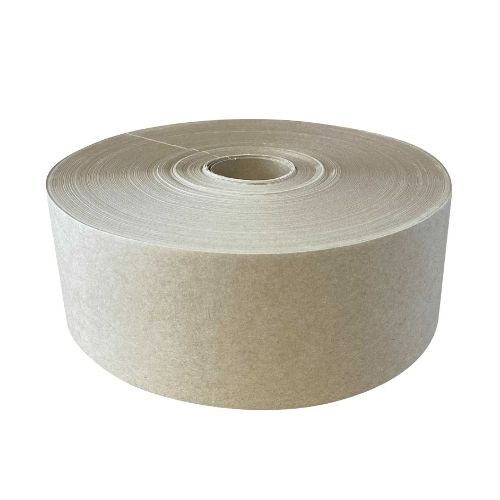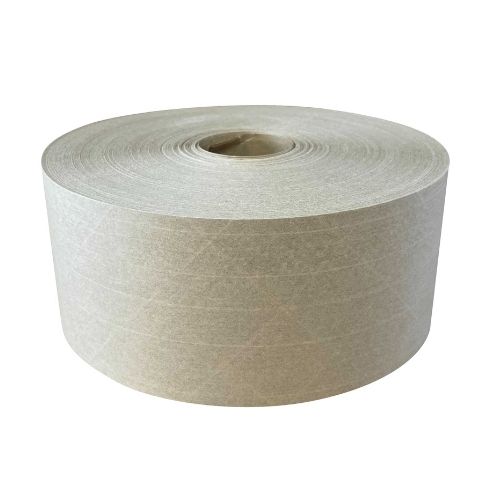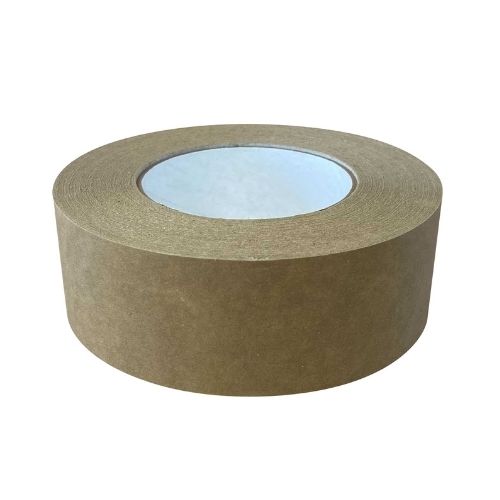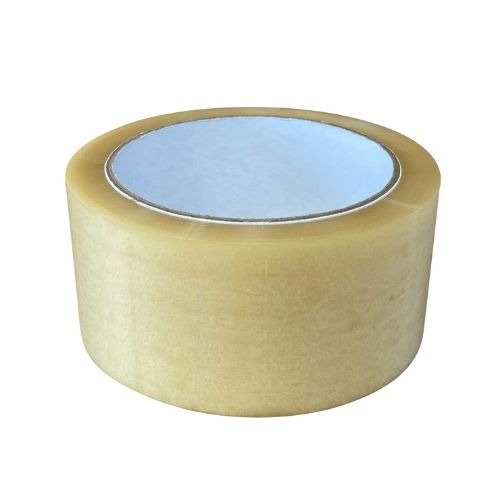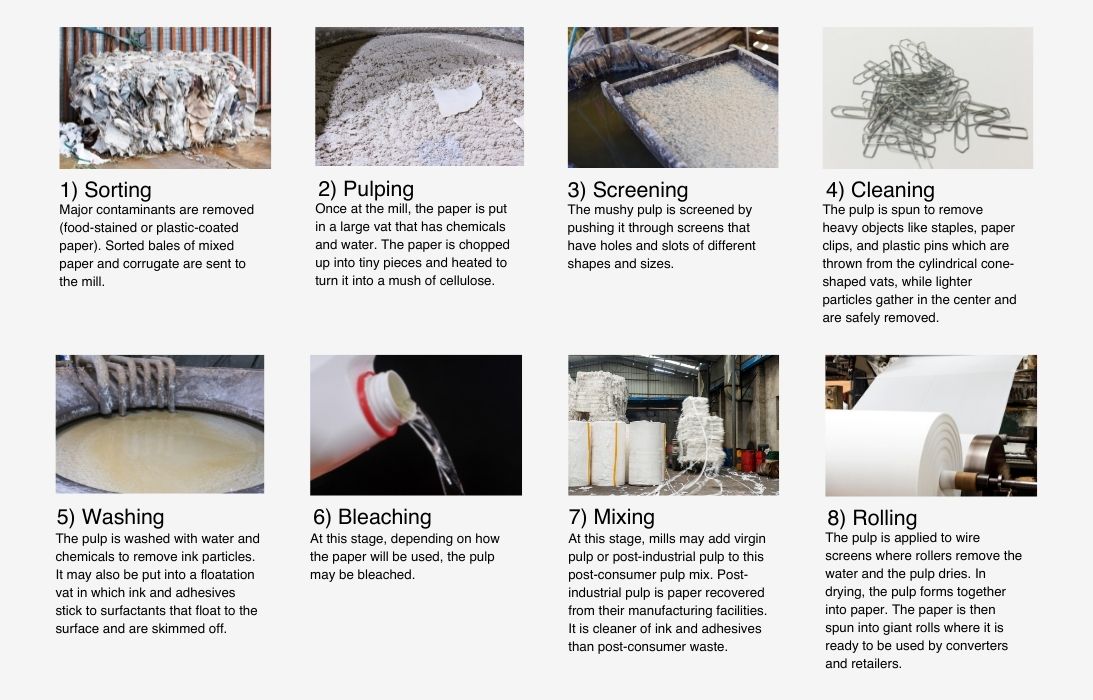Carton Sealing Tape
Ensure your packaging is easily recycled at the end of its life.
EcoEnclose packing tape is available in a variety of materials, strengths, and colors. Whatever your needs and budget, we have an earth-friendly packing tape for you.
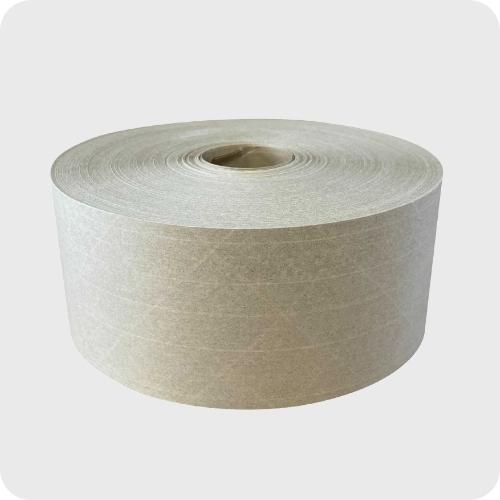
Water-Activated Tape
Paper tape ideal for higher-volume applications. Requires less material per seal. Available reinforced with fiberglass.
Available in 5 strengths and 2 colors
Ready to ship | Min. 1 unit
Customizable | Min. 60 units
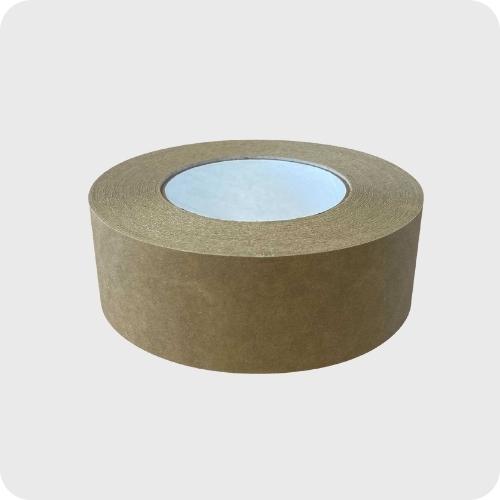
Kraft Flatback Tape
Paper tape ideal for lower-volume and lightweight applications. Paper facestock with a rubber adhesive. Recycle-compatible.
Available in 1 strength
Ready to ship | Min. 1 unit
Customizable | Min. 80 units
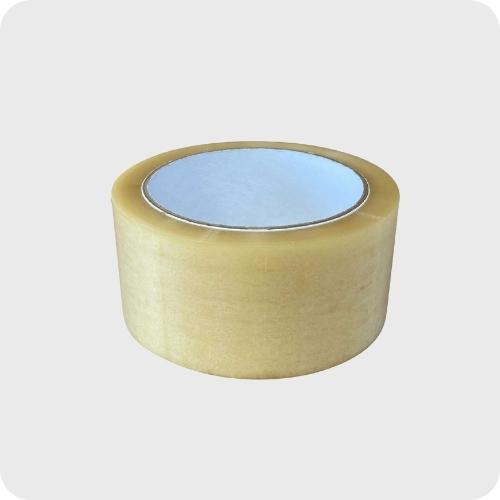
Cello Tape
Clear tape ideal for lower-volume and lightweight applications. Entirely plant-derived, renewable, and industrially compostable.
Available in 1 strength
Ready to ship | Min. 1 unit
Customizable | Min. 60 units

Tape Dispensers
Manual and electric tape dispensers for our water-activated tape ensure ease of application and operational efficiency.
Available in 6 styles
Ready to ship | Min. 1 unit


